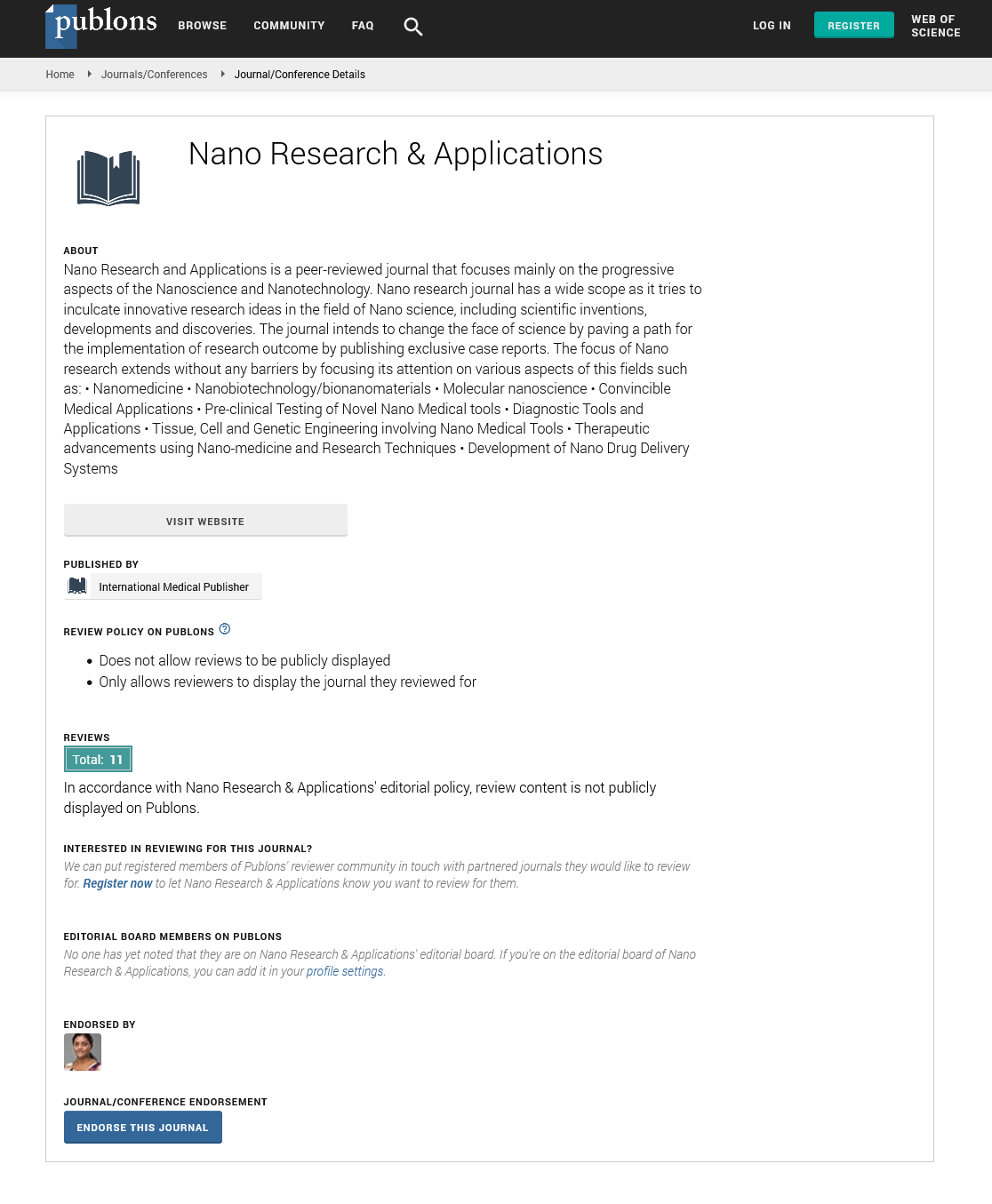ISSN : 2471-9838
Nano Research & Applications
Microstructure, nano hardness and chemical composition of thin layers after friction of four FCC metals in lubricated conditions
Joint Event on 22nd International Conference on Advanced Materials and Simulation & 22nd Edition of International Conference on Nano Engineering & Technology
December 10-12, 2018 Rome, Italy
Lev Rapoport, Inna Popov Alexey Moshkovich, Vladislav Perfilyev, Tatyana Bendikov and Sidney R Cohen
Hebrew University of Jerusalem, Israel Holon Institute of Technology, Israel The Weizmann Institute of Science, Israel
ScientificTracks Abstracts: Nano Res Appl
DOI: 10.21767/2471-9838-C7-027
Abstract
In the present work the evolution of deformation microstructure, nano hardness and chemical composition of four FCC metals (Ag, Cu, Ni, Al) after friction in the lubricated conditions are studied. Deformation hardening and grain size as well as friction and wear depend strongly on stacking fault energy (SFE). In light of the above, we evaluate here the effect of plastic deformation on microstructure evolution, chemical composition and hardness and their connection to the friction and wear properties of studied metals with different SFE. All friction lubricated tests were conducted using pure polycrystalline FCC metals with different SFE. The cross sectional transmission electron microscopy (TEM) lamellae were prepared from the pins using a focused ion beam (FIB). In TEM we analyzed regions of the pins after friction in steady state, where the friction coefficient (ï) and hardness (Hs) remained unchanged with deformation in boundary lubrication (BL). Thermally activated process of the rearrangement and annihilation of dislocations are accelerated during friction of Ni due to high SFE and contact temperature. Cross-sectional microstructures observed normal and parallel to the direction of friction are dissimilar. Steady state values of grain size, ds and hardness, Hs after friction in lubricated conditions are explained by a balance between hardening and dynamic recovery in surface layers strongly depending on the SFE and temperature. A correlation between the wear properties (wear coefficient) and total work of deformation during nano indentation shows a similarity in the nano and micro scales in lubricated friction. Recent Publications 1. A Moshkovich, I Lapsker, Y Feldman and L Rapoport (2017) Severe plastic deformation of four FCC metals during friction under lubricated conditions. Wear 386:49-57. 2. I Popov, A Moshkovich, S R Cohen, V Perfilyev, A Vakahy and L Rapoport (2018) Microstructure and nano hardness of Ag and Ni under friction in boundary lubrication. Wear 404:62-70. 3. I Popov, A Moshkovich, T Bendikov and L Rapoport (2018) Deformation Microstructure and Chemical Composition of Surface Layers of Cu and Al Under Friction in Lubricated Conditions. Tribology Letters 66(3):78.
Biography
Lev Rapoport is the Head of the Center for Materials Engineering and the Laboratory of Tribology at the Holon Institute of Technology. Friction and wear properties of fullerene-like nanoparticles were studied at first in his laboratory. Last some years he studied the interaction between structure friction and wear. He is the Principal Investigator in several research grants sponsored by the Israel Ministry of Science, the Bi-national Israel-USA and Germany-Israel Funds. He is the author more than 100 publications. He is Vice-President of the Tribology Council in Israel.
E-mail: rapoport@hit.ac.il
Google Scholar citation report
Citations : 387
Nano Research & Applications received 387 citations as per Google Scholar report
Nano Research & Applications peer review process verified at publons
Abstracted/Indexed in
- Google Scholar
- China National Knowledge Infrastructure (CNKI)
- Directory of Research Journal Indexing (DRJI)
- WorldCat
- Publons
- Secret Search Engine Labs
- Euro Pub
Open Access Journals
- Aquaculture & Veterinary Science
- Chemistry & Chemical Sciences
- Clinical Sciences
- Engineering
- General Science
- Genetics & Molecular Biology
- Health Care & Nursing
- Immunology & Microbiology
- Materials Science
- Mathematics & Physics
- Medical Sciences
- Neurology & Psychiatry
- Oncology & Cancer Science
- Pharmaceutical Sciences
